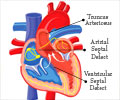We have a tool that in the future can be used on almost every chest scan to generate very clinically relevant information for a large number of patients.

TOP INSIGHT
We have a tool that in the future can be used on almost every chest scan to generate very clinically relevant information for a large number of patients.
"For select patients at intermediate risk of heart disease, if the calcium score is 0, statin can be deferred. If the calcium score is high, then those patients should be on a statin."
Despite its prognostic value, coronary artery calcium is not routinely measured in low-dose CT lung screening, as the measurements require dedicated software and add time to the interpretation.
"If our tool detects a lot of coronary artery calcium in a patient, then maybe we can send that patient to a specialist for follow up," said lead author Roman Zeleznik, M.Sc., B.Sc., from the Artificial Intelligence in Medicine (A.I.M.) Program at Boston’s Brigham and Women’s Hospital (B.W.H.) and Dana-Farber Cancer Institute. "This would make it easier for patients to get appropriate treatment."
The research team, which represents a close collaboration between M.G.H.’s CIRC and A.I.M. at B.W.H., recently developed and tested a technique that uses deep learning, a sophisticated type of AI, to automatically measure coronary artery calcium on chest CT images. They trained the deep learning system on cardiac CTs and chest CTs in which the coronary artery calcium had been measured manually.
The results showed that the deep learning-derived coronary artery calcium scores corresponded closely to those of human readers. In addition, there was a significant association between deep learning calcium scores and cardiovascular death over a follow-up of 6.5 years. "There’s information about cardiovascular health on these CT scans," Dr. Lu said. "This is an automated way to extract that information, which can help patients and physicians make decisions about preventative therapy."
It could also have value outside of the lung screening population. The research team has already demonstrated its effectiveness in people with stable and acute chest pain.
"We have a tool that in the future can be used on almost every chest scan to generate very clinically relevant information for a large number of patients," said study co-senior author Hugo Aerts, Ph.D., director of the A.I.M. Program at B.W.H. The research team has already demonstrated similar results in clinical trial populations in patients with stable (PROMISE Trial) and acute (ROMICAT trial) chest pain.
Source-Eurekalert
 MEDINDIA
MEDINDIA




 Email
Email










